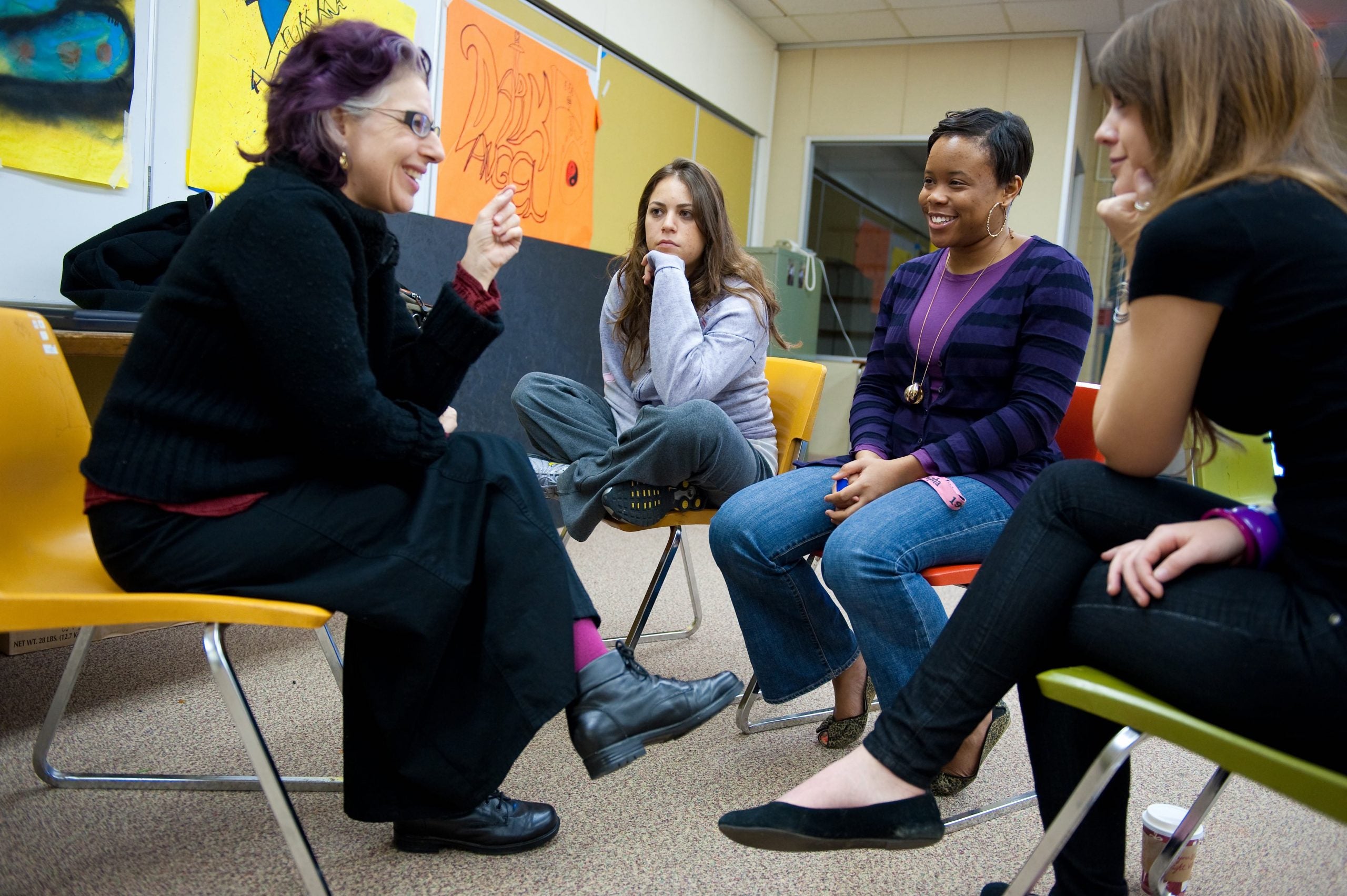
Faculty Practices
Overview
The following videos are curated from a longer panel (also linked) of four University of Michigan faculty and a moderator about inclusive teaching in their contexts. These faculty are known on campus for their innovative practice and intentional consideration for multiple identities and experiences in their classrooms.
In this video, Teresa Satterfield, Professor of Spanish, demonstrates how to facilitate a productive discussion in the classroom starting with the first day of class. She states that it is important to teach students to disagree with ideas rather than with a person or identity. (1:45)
In this video, Paul Barron, Lecturer at the Sweetland Center for Writing, offers methods to help students interrogate assumptions and stereotypes. He suggests that faculty lower the stakes in classroom discussions through a process of active listening, checking in with students about their intentions and allowing students to affirm or correct their own statements. He advises faculty to take the burden off the student by acknowledging that these are beliefs held in the world, and then putting this notion under interrogation to see how ideas can benefit or harm individuals. (2:38)
In this video, Robin Queen, Professor of Linguistics, Germanic Languages and Literatures, and English Language and Literatures, shares the importance of using students’ names in classroom interactions. She affirms that using students’ names makes a difference in how the students interact with the professor and with each other. (1:13)
In this video, Teresa Satterfield, Professor of Spanish, discusses various aspects for faculty to consider when building inclusive syllabi. For example, she suggests that faculty include multiple perspectives and voices in course materials, while ensuring that the materials are accessible to all students. (1:42)
In this video, Sara Soderstrom, Assistant Professor of Organizational Studies and Program in the Environment, demonstrates how inclusivity plays a fundamental role in any class, even when it does not seem directly to align with course content. She discusses the implementation of several inclusive practices in a senior capstone course, and their benefits for the program as a whole, describing the process as an ongoing effort that requires input from students and the professor. (5:50)
In this video, Professor Satterfield speaks from personal experience teaching a community-based learning course. She highlights the benefits of community-based learning, such as the connections that students build with others as well as the cultural immersion that students experience. (3:05)
In this video, Professor Soderstrom discusses how thinking about solving large societal problems in the classroom equips students with the skills to develop into better problem solvers and leaders in the world. (1:33)
In this video, Professor Soderstrom speaks about becoming invested in inclusive teaching. She wanted to help students navigate conversations and become comfortable disagreeing and engaging with others who come from diverse backgrounds. (1:45)
In this video, Professor Barron addresses how to share power and expertise in the classroom. He recommends that instructors think of themselves as facilitators who direct the conversation in productive ways but are not responsible for everything that is said. (2:06)
In this video, Professor Barron introduces the one-minute paper as a way to gain valuable feedback from students. The one-minute paper allows professors to locate areas where students are struggling and to see students as individual thinkers. (2:26)
(Full-Length Panel Discussion, 1:32:13)
This video is a conversation among four faculty panelists and a moderator about inclusive teaching in their contexts. The panelists discuss various aspects of inclusive teaching, from syllabus design to interpersonal communication. The panelists are: Paul Barron, Lecturer at the Sweetland Center for Writing; Teresa Satterfield, Professor of Spanish; Robin Queen, Professor of Linguistics, Germanic Languages and Literatures, and English Language and Literatures; and Sara Soderstrom, Assistant Professor of Organizational Studies and Program in the Environment.


